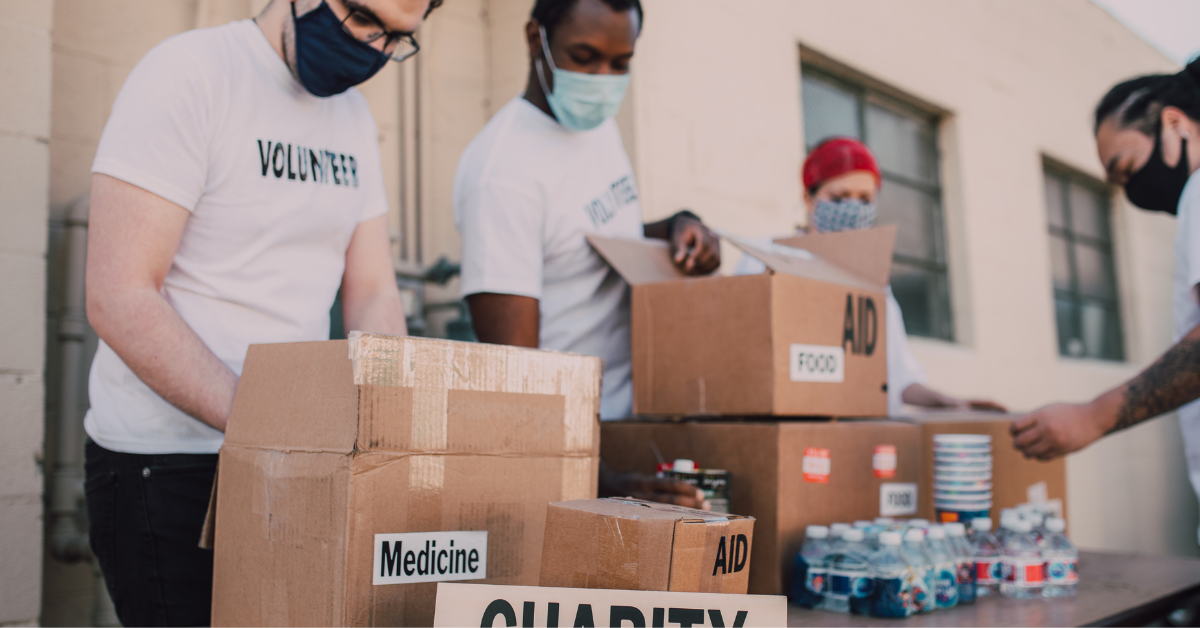 By Stephanie Pietromonaco, Consultant at AskRIGHT
By Stephanie Pietromonaco, Consultant at AskRIGHTIn the midst of natural disasters, philanthropy gives people a way to feel in control and that they can make a difference. As consultants, we must be prepared with sound advice for our current and potential clients during these challenging times.
AskRIGHT has learned a great deal about disaster fundraising from our work with the Catholic Diocese in Christchurch, New Zealand following the deadly earthquakes of 2011. Over the past nine months, we’ve watched Australian organizations deal with the impact of devastating bushfires, and we have developed lessons that will hopefully serve you well as local, national, and global communities deal with new and existing disasters; this feels particularly relevant as we see panic spread over the COVID-19 virus in 2020.
The philanthropy in response to the bushfires in Australia has been remarkable and is much needed. Unfortunately, there will be scams that arise to take advantage of the grief experienced as a result of these events, and, at some point, the media will accuse some of our great charities of the mismanagement of funds. It’s important for us to do what we can to assist non-profits in these chaotic times.

DON’T WAIT TO START FUNDRAISING
While there are reasons to wait – for example, the bushfires continue in some places, there are many emergency needs seeking funding, the ambiguity surrounding insurance payouts, and more – there are better reasons to act now; an insurance payout might take years to settle and is unlikely to fully cover the new facility/ies, and the time-window for raising funds is open only until the next disaster – and you can’t predict when that will be.
Have your client consider their current resources and what they can do even in the midst of the disaster. Consider a triage approach – raise funds now for immediate needs and also develop a plan now to raise funds for rebuilding later.

SPEAK TO CURRENT & PROSPECTIVE CLIENTS NEEDING EXTRA HELP
The direct impact of the bushfires means that regular volunteers and staff may be unavailable to aid in fundraising; they may be dealing with personal trauma, perhaps injury or bereavement, and loss of dwellings, livelihoods, etc. Non-profits will need the help of professionals to accomplish fundraising in a timely manner. This is when you can offer your services, even if for a short-time or on a specific project basis.

PREPARE A RELEVANT CASE FOR SUPPORT
You need a case for support linking the needs the organization meets, their activities, the impact of the disaster, and how the work will help address ongoing needs (now increased or changed by the impact of the disaster). Take photos to include in the case for support when it is safe to do so – don’t rely on media images or photos owned by other people.

COMMUNICATE INFORMATION, EVEN IF IMPERFECT
Whatever information you put before a potential funder must be accurate, but it doesn’t have to be perfect. If your quotation is a back-of-the-envelope calculation, say so. If you don’t yet have permission to rebuild, say so. Keep communicating with prospects and funders as the quality of information improves.

IDENTIFY ALL POTENTIAL FUNDERS
Do some fresh prospect research to look for new funders who would be interested in the organization, specifically in response to the disaster. Bring people together who care about the organization or who know the community. This is a three-step process: 1) Write up the key characteristics of the organization and this project (location, purpose, demographic served, etc.), 2) Brainstorm the motivations the person or organization might have for providing funds (focus on “why” not “who”), and 3) Look at each of the motivations and ask what person, foundation, or company might give for that reason.

ENLIST SUPPORTERS FOR THE JOURNEY OF RECOVERY
As early as possible, make contact with potential funders (including every past and current funder, member, and visitor). It is okay to say, “we are still working through many issues, but I would like to ask your permission to keep you informed of our progress and to talk with you about funding when the time is right.” Get some kind of response from everyone – work out who is journeying with you.
You can ask for a small gift, if you flag a more substantial solicitation coming later – for example, “by the end of the year, I hope to be sitting with you sharing our plans for a new facility, but, right now, we need $15,000 to clear the site. Will you give $500 towards this?”

LOOK FOR DISASTER-SPECIFIC GRANT FUNDS
Keep your elected representatives and their staff up to date with the situation and ask them about funding sources. Each one wants to help – to be seen to help – and often has access to good information about funding sources. Check various government departments for disaster-specific funds available, i.e. FEMA and USEDA.

GO INTERNATIONAL
If the organization’s members have friends in other countries, if it is part of an international network, or if you can identify like-minded organizations elsewhere, go ahead and make contact.

TARGETED FUNDING AGENCIES
Identify and pursue funding opportunities through the many Government and non-profit agencies that will be distributing funds after this major disaster. With the organization, decide on a minimum contribution level that is worth applying for and keep your effort for these applications and in-person conversations.

THANK, MEASURE, REPORT, THANK
For many people, communities, and non-profit organizations, the road to recovery will be long. Receiving thanks and knowing that progress is being made will be sufficient to keep many donors on board for the long journey.
Think now about how you can thank people in the future. Ashen mementos might cause grief now, but they can be a powerful thank-you when the facility re-opens. Thank donors in meaningful ways and share your hopes and disappointments honestly. Report progress when it happens and thank again.
Finally, be kind to yourself. Everyone involved in a national or global emergency is affected by the scale of the disaster.
Remember to take the time to look after yourself as you will be able to do more good with sound health. During a crisis, it is sometimes hard to see beyond the immediate need. Take time to breathe and get a sense of the big picture. You are not alone.
For fundraising advice and assistance, contact AskRIGHT:
www.askright.com
AU 1300 758 812
NZ 0800 577 677
For fundraising new and resources, follow AskRIGHT:
Facebook facebook.com/AskRIGHTsocial
LinkedIn linkedin.com/company/6472794
Twitter twitter.com/Ask_RIGHT
Instagram instagram.com/askright
About Stephanie Pietromonaco
Stephanie has been fundraising for the past eight years, with the majority of her work based in Seattle. She has worked with individual donors, foundations, and corporations, and is experienced in asking for multi-million dollar gifts, campaign planning and execution, and putting on 300+ attendee events. Read Stephanie’s full profile here.


